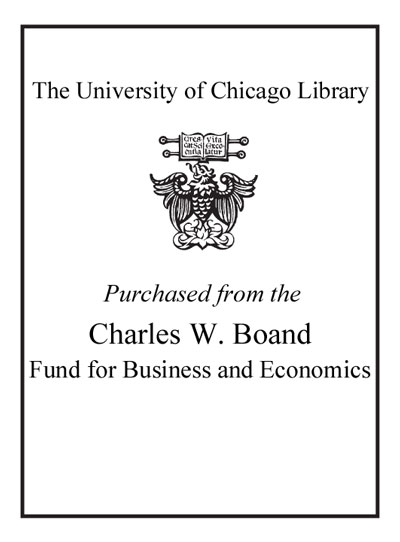Review by Choice Review
Gilmore and Pine (cofounders, Strategic Horizons LLT) address the important concept of being authentic in a business world they describe as being overrun with fakery and gimmicks. They define authenticity in terms of how a company conforms to its self-image and how customers perceive and respond to that image. They then provide evidence of the need and value of authenticity, offering many examples (e.g., Wal-Mart, Disney, Starbucks, the Geek Squad) to illustrate how being authentic or inauthentic can help or hinder a business's success. They frequently reference their previous book, The Experience Economy (CH, Dec'99, 37-2254). The bulleted outlines and the summaries provided in many figures serve as a quick overview of the entire book. This work is filled with sound principles. One minor flaw is that some of the modeling appears at times to be an attempt to sound erudite, which is unnecessary since the ideas in the book speak for themselves. Detailed notes. Summing Up: Recommended. Upper-division undergraduate through practitioner collections. K.M. Johnson Concordia University
Copyright American Library Association, used with permission.
Review by Publisher's Weekly Review
This eye-opening but muddled volume tells companies to "remain true to self" or, at least, to appear genuine, arguing that "in a world increasingly filled with deliberately and sensationally staged experiences... consumers choose to buy or not buy based on how real they perceive an offering to be." Everything that forms a company's identity-from its name and practices to its product details-affects consumers' perceptions of its authenticity. Juggling philosophical concepts, in-depth case studies and ad slogans, Gilmore and Pine (The Experience Economy) run into trouble with a chapter called "Fake, Fake, It's All Fake," which eviscerates the entire idea of authenticity: "Despite claims of `real' and `authentic' in product packaging, nothing from businesses is really authentic. Everything is artificial, manmade, fake." The argument is unexpected and perhaps brilliant-yet rather confusing, since most of Authenticity argues that businesses should strive to not only appear authentic but to be so. The book's bullet points, charts and matrices add to the tangle, as the authors' early advice ("your business offerings must get real") becomes a demand for furrowed-brow soul-searching. Still, the prose is snappy and conversational, and the book is densely packed with insights and provocations, and may inspire some executives to consider how consumers see their company. (Nov.) (c) Copyright PWxyz, LLC. All rights reserved
(c) Copyright PWxyz, LLC. All rights reserved
Review by Library Journal Review
In a way, this is a sequel to the authors' 1999 best seller, The Experience Economy: Work Is Theatre & Every Business a Stage, also building on the premise that people aren't satisfied with commodities anymore-they want an experience (i.e., the entertainment and memories that surround the act of using a product or service). The twist here is the difference between the real and fake experience, and the book provides many examples of what that means and why it matters. This theme is part of a broader movement expressed through books such as Robert Scoble and Shel Israel's Naked Conversations: How Blogs Are Changing the Way Businesses Talk with Customers. Like Authenticity, these books don't focus on the products or services themselves but on how they are made, discussed, and experienced; the movement is away from products and toward the consumer's imagination and needs. Libraries with the luxury to collect observations about the latest trends should examine such books more closely. Authenticity is a branding book of sorts but from a completely different angle than other books on the topic. It is ideal for business school libraries, especially those with an emphasis on marketing and product development.-Stephen Turner, Turner & Assocs., Abington, PA (c) Copyright 2010. Library Journals LLC, a wholly owned subsidiary of Media Source, Inc. No redistribution permitted.
(c) Copyright Library Journals LLC, a wholly owned subsidiary of Media Source, Inc. No redistribution permitted.
Review by Choice Review
Review by Publisher's Weekly Review
Review by Library Journal Review

